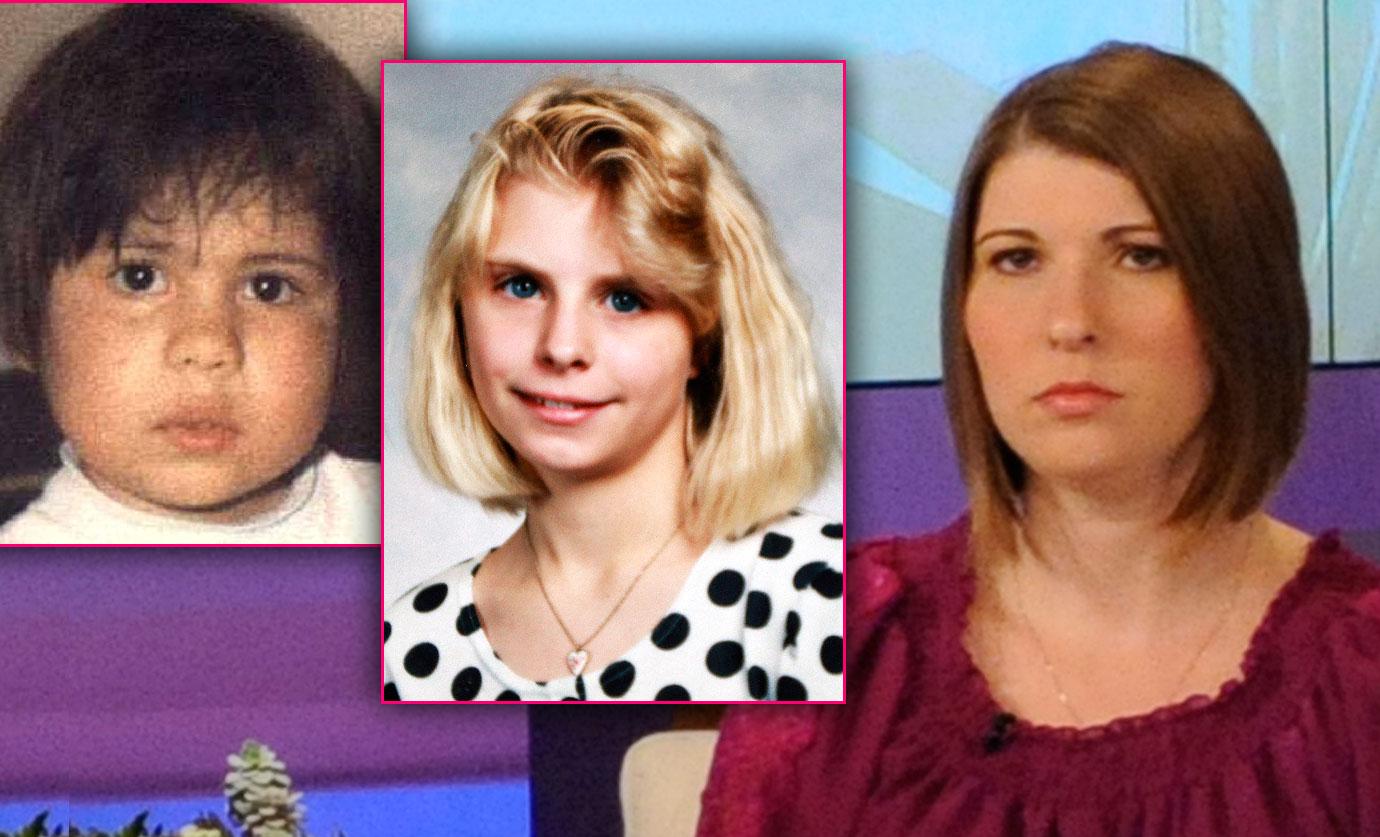The Unthinkable Decade: Tanya Nicole Kach's Captivity Unveiled
Table of Contents
- The Disappearance of Tanya Nicole Kach: A Decade of Captivity
- The Abductor: Thomas "Tom" Hose and His Deception
- Life in Captivity: A Decade of Isolation and Abuse
- The Long Road to Freedom: Tanya's Escape
- Aftermath and Recovery: Speaking Out and Healing
- The Lifetime Movie: Bringing Tanya's Story to the Screen
- Understanding Kidnapping: A Serious Criminal Offense
- Lessons Learned and Moving Forward: A Call for Awareness
The Disappearance of Tanya Nicole Kach: A Decade of Captivity
The ordinary day of February 10, 1996, turned into a nightmare for the family and friends of Tanya Nicole Kach. Tanya, then a normal 14-year-old eighth-grader, simply walked out of Cornell Middle School in McKeesport, Pennsylvania, and vanished. What followed was a decade-long mystery, a period during which Tanya was reported missing, yet her whereabouts remained unknown to the outside world. The truth, however, was far more sinister than anyone could have imagined. She was not merely missing; she was held captive, her life controlled by a man she knew and trusted from her school.The Abductor: Thomas "Tom" Hose and His Deception
The perpetrator of this unimaginable crime was Thomas "Tom" Hose, a security guard at Cornell Middle School. In February 1996, the same month Tanya disappeared, Hose was working at the very institution where Tanya was a student. This position of authority and trust allowed him to manipulate and abduct Tanya, exploiting her vulnerability. The insidious nature of his crime lies in the fact that he was a figure of supposed protection within the school environment, making his betrayal all the more shocking and devastating. The details of how he managed to lure and confine her remain a chilling example of a predator operating under the guise of respectability.Life in Captivity: A Decade of Isolation and Abuse
For ten agonizing years, Tanya Kach was held captive in Thomas Hose's suburban home in Pennsylvania. Her life was reduced to an existence defined by isolation and control. She was rarely allowed to leave the house, effectively cut off from the outside world, her family, and any semblance of a normal life. During this harrowing period, Tanya, who was just 14 when she was abducted, was also sexually abused for a decade. Her captor exerted complete dominance over her, stripping her of her freedom, her innocence, and her identity. The psychological toll of such an ordeal is immeasurable, leaving deep scars that would take years, if not a lifetime, to heal. The fact that this prolonged captivity occurred in a suburban home, often unnoticed by neighbors, highlights the hidden horrors that can exist behind closed doors.The Long Road to Freedom: Tanya's Escape
It wasn’t until a decade after her abduction that Tanya Nicole Kach managed to escape her captor. The exact circumstances of her escape underscore her incredible courage and will to survive. After ten years of being held hostage, she finally found an opportunity to break free from the clutches of Thomas Hose. This moment of liberation, a decade in the making, marked the end of her physical captivity but the beginning of a long and arduous journey toward recovery and reclaiming her life. Her ability to escape after such a prolonged period of control is a testament to her inner strength and resilience, offering a glimmer of hope in an otherwise dark narrative.Aftermath and Recovery: Speaking Out and Healing
Upon her discovery and subsequent freedom, Tanya Kach began the long process of healing and speaking out. Her story, a gripping and horrifying account of survival, quickly garnered national attention. Today, Tanya, now 41, has had to confront not only her past but also the ongoing challenges that arise from such a traumatic experience. She has bravely chosen to share her chilling story, not just for her own healing, but to raise awareness and help others.The Influence of Elizabeth Smart
A significant turning point in Tanya's journey to share her story publicly came through the encouragement of fellow kidnapping survivor, Elizabeth Smart. Smart, whose own abduction and recovery captivated the nation, convinced Tanya to speak out about her harrowing ordeal. This solidarity among survivors often provides the necessary strength and validation for individuals to process their trauma and transform their experiences into a force for good. Elizabeth Smart's influence helped Tanya find her voice, enabling her to transcend her victimhood and become an advocate.Tanya's Book and Public Testimony
Tanya Kach has since written about her life before, during, and after the 10 years she was held captive. In her book, she delves into the intricate details of her ordeal, providing an invaluable first-hand account of what it means to be held hostage for such a prolonged period. Beyond her written narrative, Tanya has also had to face the legal system, testifying against her mother and recounting the severe beatings she suffered, including a disturbing scene where her mother hit her head against the wall. This aspect of her story adds another layer of complexity to her traumatic past, revealing the multifaceted challenges she faced even within her own family dynamic. Her father, she says, partially blamed her for the disappearance, highlighting the profound and often misguided impact of such events on families.The Release of Thomas Hose
One of the most difficult challenges Tanya has faced in recent times is the release of her captor, Thomas Hose, from prison. For Tanya, this development was her "worst nightmare come true." The thought of the man who held her captive for a decade being free is a deeply unsettling reality for any survivor. It underscores the ongoing psychological impact of such crimes, where the fear and trauma can persist long after physical freedom is achieved. Tanya's resilience in confronting this new reality is a testament to her enduring strength.The Lifetime Movie: Bringing Tanya's Story to the Screen
The compelling and true story of Tanya Nicole Kach's abduction and captivity has been brought to the screen in a gripping Lifetime film. Directed by Simone Stock, 'The Girl Locked Upstairs: The Tanya Kach Story' narrates the shocking story of a young girl being held captive by her school security guard for 10 years in a suburban home in Pennsylvania, United States. This movie serves as a powerful medium to disseminate Tanya's experience to a wider audience, raising awareness about the signs of captivity, the vulnerability of children, and the long-term effects of such trauma. By portraying her story, the film not only honors Tanya's struggle and survival but also educates the public on the realities of such heinous crimes. The 1995 disappearance of Tanya Kach, as examined in the film and various investigations, continues to resonate, prompting discussions about child safety and predator identification.Understanding Kidnapping: A Serious Criminal Offense
The case of Tanya Nicole Kach falls under the umbrella of kidnapping, a grave criminal offense with severe legal ramifications. Understanding the legal definitions and types of kidnapping is crucial for comprehending the gravity of such crimes and the justice system's response to them.Legal Definitions and Ramifications
Kidnapping is broadly defined as the unlawful taking and carrying away of a person by force or fraud, or the unlawful seizure and detention of a person against their will. At common law, it constitutes an unlawful restraint of a person's liberty by force or show of force. Under modern law, the crime typically requires that the victim be taken or confined without their consent. In the United States, kidnapping is a serious criminal offense under both federal and state law. It involves the unlawful abduction, confinement, or movement of a person against their will, often for ransom, but also for other nefarious purposes like sexual exploitation or forced labor. Penalties for kidnapping are severe, especially when the crime involves children. It can be a state or federal felony offense, punishable by up to 20 or more years in prison, depending on the specific circumstances and jurisdiction. The laws surrounding this crime are designed to protect individual liberty and safety, recognizing the profound violation that kidnapping represents.Types and Consequences of Kidnapping
There are many different types of kidnapping, ranging from parental abduction (taking one's own child out of state or country to keep them from another parent) to stranger abduction, which is what happened in the kidnapping of Tanya Nicole Kach. The crime of kidnapping has existed for centuries and was often used as a means of control or coercion. Beyond the legal penalties for perpetrators, the consequences for victims of kidnapping are devastating and long-lasting. Victims often suffer severe psychological trauma, including PTSD, anxiety, depression, and difficulty forming trusting relationships. The loss of freedom, the fear for one's life, and the potential for abuse leave deep emotional scars. For children, like Tanya Kach, who are abducted at a young age, the impact can fundamentally alter their development and sense of self. Resources exist to help victims and their families find their path forward, such as those that equip victim service providers with tools to help, emphasizing the need for comprehensive support systems.Lessons Learned and Moving Forward: A Call for Awareness
The story of the kidnapping of Tanya Nicole Kach is a powerful narrative of survival against overwhelming odds. It serves as a critical reminder that vigilance and awareness are paramount in protecting our communities, especially our children. Tanya's journey from victim to survivor, and now to an advocate, offers invaluable insights into the long-term impact of such crimes and the incredible strength required to heal. Her decision to speak out, influenced by others like Elizabeth Smart, highlights the importance of shared experiences in fostering healing and empowerment. The Lifetime movie, 'The Girl Locked Upstairs: The Tanya Kach Story,' further amplifies her voice, ensuring that her ordeal is not forgotten and that its lessons are learned by a wider audience. As a society, we must remain educated about the signs of abduction and exploitation, understanding that predators can operate from positions of trust. We must also continue to support victims of such heinous crimes, providing them with the resources, empathy, and understanding they need to rebuild their lives. Tanya Kach's ability to finally feel free, despite the ongoing challenges, is a testament to the human spirit's capacity for resilience. Her story compels us to be more aware, more vigilant, and more compassionate. If you found this article insightful, please consider sharing it to raise awareness about the realities of kidnapping and the enduring strength of survivors like Tanya Nicole Kach. Your comments and thoughts are also welcome below. For more stories of resilience and discussions on critical safety topics, explore other articles on our site.
Tanya Kach, Held Captive by Her School Security Guard, on Finding the

Kidnapping Victims Cases Tanya Kach Mary Lozano & Katie Beers

Tanya Kach, Pittsburgh-area girl held captive for 10 years, shares